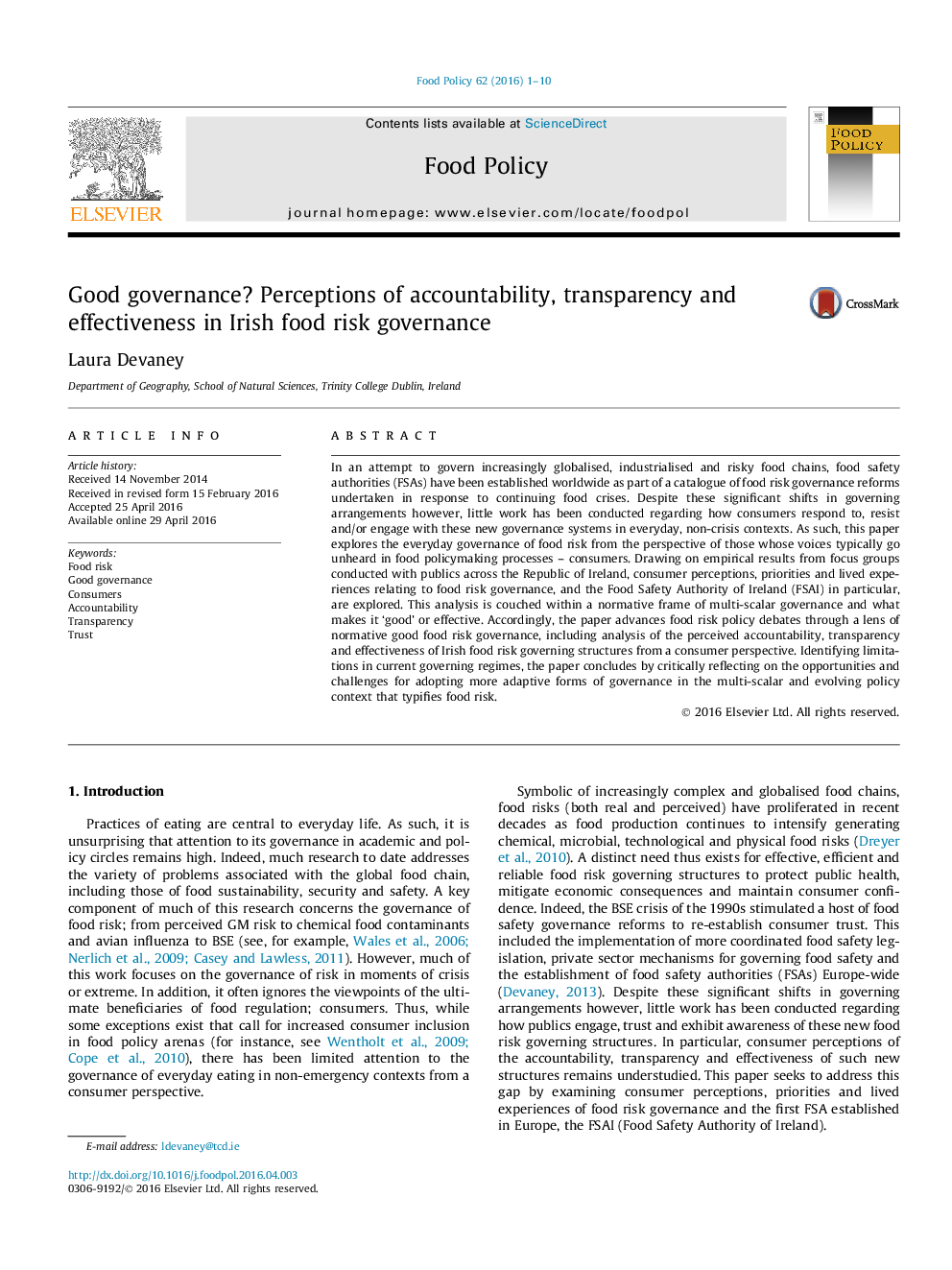| کد مقاله | کد نشریه | سال انتشار | مقاله انگلیسی | نسخه تمام متن |
|---|---|---|---|---|
| 5070130 | 1477014 | 2016 | 10 صفحه PDF | دانلود رایگان |
- Consumer engagement with everyday food risk governance is limited and understudied.
- Natural focus groups provide one forum for engaging consumers in food risk governance.
- Consumer responses highlight limited overall awareness and trust in the FSAI.
- Increased accountability, transparency and effectiveness may build awareness and trust.
- Adaptive governing regimes are essential to manage future food risks.
In an attempt to govern increasingly globalised, industrialised and risky food chains, food safety authorities (FSAs) have been established worldwide as part of a catalogue of food risk governance reforms undertaken in response to continuing food crises. Despite these significant shifts in governing arrangements however, little work has been conducted regarding how consumers respond to, resist and/or engage with these new governance systems in everyday, non-crisis contexts. As such, this paper explores the everyday governance of food risk from the perspective of those whose voices typically go unheard in food policymaking processes - consumers. Drawing on empirical results from focus groups conducted with publics across the Republic of Ireland, consumer perceptions, priorities and lived experiences relating to food risk governance, and the Food Safety Authority of Ireland (FSAI) in particular, are explored. This analysis is couched within a normative frame of multi-scalar governance and what makes it 'good' or effective. Accordingly, the paper advances food risk policy debates through a lens of normative good food risk governance, including analysis of the perceived accountability, transparency and effectiveness of Irish food risk governing structures from a consumer perspective. Identifying limitations in current governing regimes, the paper concludes by critically reflecting on the opportunities and challenges for adopting more adaptive forms of governance in the multi-scalar and evolving policy context that typifies food risk.
Journal: Food Policy - Volume 62, July 2016, Pages 1-10
